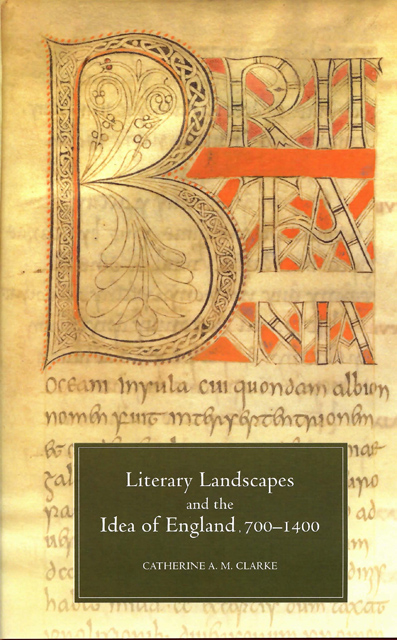Book contents
- Frontmatter
- Dedication
- Contents
- Acknowledgements
- Abbreviations
- Introduction
- Chapter One The Edenic Island
- Chapter Two Re-making the locus amoenus in Anglo-Saxon England
- Chapter Three Local Landscapes as Mirrors for England
- Chapter Four The Delightful City
- Epilogue: Disruptions and Continuities
- Bibliography
- Index
Chapter Two - Re-making the locus amoenus in Anglo-Saxon England
Published online by Cambridge University Press: 28 February 2024
- Frontmatter
- Dedication
- Contents
- Acknowledgements
- Abbreviations
- Introduction
- Chapter One The Edenic Island
- Chapter Two Re-making the locus amoenus in Anglo-Saxon England
- Chapter Three Local Landscapes as Mirrors for England
- Chapter Four The Delightful City
- Epilogue: Disruptions and Continuities
- Bibliography
- Index
Summary
The possibility of a literary pastoral tradition in the early English vernacular has received little critical attention, and has often been explicitly denied. The locus amoenus or conventional delightful landscape has generally been perceived primarily as a feature of Latin literary tradition, and critical assumptions about the difference or otherness of the English vernacular have perpetuated this view. Critical discussion of landscape imagery in Old English is often based upon a distinction between Latin and vernacular traditions, as well as a perceived contrast between poetic traditions of ‘Saxon’ and ‘Celtic’ origin. In Landscapes and Seasons of the Medieval World, Derek Pearsall and Elizabeth Salter make the typical distinction.
The ossification of classical landscape in Byzantine, Carolingian and Romanesque painting may be compared… with the formalization of the locus amoenus in the Latin poetry of the period. The insignificance of landscape, in any form, in the native vernaculars reinforces the generalization about the sophisticated and particular provenance of a taste for landscape. There is no ‘taste for landscape’ in Old English poetry, for instance, and no ‘feeling for nature’ though there is an awareness of its grim realities.
Helen Cooper's important study Pastoral: Mediaeval into Renaissance (Ipswich, 1977) does not include vernacular poetry until the later medieval period. Jennifer Neville’s study, Representations of the Natural World in Old English Poetry (Cambridge, 1999) is typical in its interpretation of the natural world in the vernacular as a direct opposition to the culture and community of human society. Neville focuses on Old English texts which describe the cultivation and control of nature as a ‘battle’ against a threatening, encroaching ‘Other’, and is typical in asserting a further difference between representations of nature in Anglo-Saxon and ‘Celtic’ vernacular literatures. The accepted view of literary landscapes in Old English as hostile, threatening and grim is also supported by Andy Orchard's examination of the Beowulf Manuscript, which approaches ‘nature’ as a potentially monstrous Other to be contained and circumscribed in texts, or as a test of heroic mastery.
However, despite this often rigid critical distinction between Latin and vernacular tradition, it seems that Old English poetry can reflect knowledge and exploitation of the literary locus amoenus – even in its representation of the most grim and horrific landscape. Hugh Magennis has related the haunted mere in Beowulf to the apocryphal Visio S. Pauli, aligning the Old English description with depictions of hell in Latin visionary literature.
- Type
- Chapter
- Information
- Literary Landscapes and the Idea of England, 700–1400 , pp. 36 - 66Publisher: Boydell & BrewerPrint publication year: 2006



